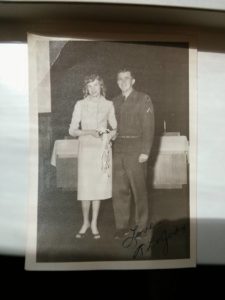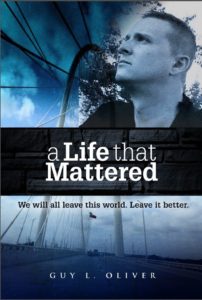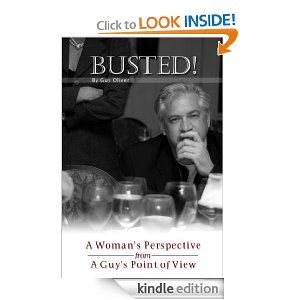I stood there transfixed, bathed in the flickering light of the black and white set, which was eerily quiet. Only the sound of horse hooves plodding along the black asphalt broke the silence, a team of white horses pulling a black box draped with an American flag. Leading them, a cadre of soldiers and sailors some with rifles and others carrying flags.
 “What is it?” I asked.
“What is it?” I asked.
“A funeral procession.” she replied.
“Who died?”
“The President.” she answered quietly.
I looked up at her, her blonde tresses at her shoulders as she stared at the emanating glow. There was a look in her eyes I didn’t recognize—something I now recognize as faint sadness but which, at the time, didn’t register with my four year-old mind.
In my youth, my mother was not prone to emotion. I seldom heard her laugh, and I never heard her cry. I remember only her singing, which had a crystal quality as she set about most days busy with housework. In my recollection, she was as industrious as she was somber.
Such is my first memory; the day President John F. Kennedy was laid to rest.
It’s funny how our early memories shape not only our childhood but our approach to life and our view of the world in adulthood. Stranger still are those we choose to remember.
My mother, Judith Lynn Diamond, born January 30th 1937, had a reason to be somber in her early adulthood. Raised by a kind mother and a father who was a combative drunk, her first memory was at once alarming and sobering.
Her father had moved the family from Tulsa, the place of my mother’s birth, to Oklahoma City for a job. He earned a good living in the trucking industry and when opportunities availed themselves, he worked very hard to exploit them—but things don’t always go as planned. This particular move was just such an occasion. Frustrated with the disappointment of work that wasn’t quite what he bargained for, he relied on a steady diet of alcohol in the evenings, which liberated his anger that he then directed toward her mother.
One evening a scuffle ensued between her parents, something she overheard from another room.
“The two of them were fighting. He was drunk again and had been yelling for the better part of an hour. When I heard the commotion I ran to the kitchen to find him wielding a butcher knife, threatening mother. I immediately began pleading with him to put the knife down again and again—and eventually he did. But I lived in fear of him every day after that. Every time he would come home, I feared for my mother’s safety. I feared for my safety.”
And that was my mother’s first memory.
That moment in which she witnessed an angry, knife-wielding father threatening her defenseless mother—her first memory at that—left her with a sense that she would never be safe; it would shape her very existence from that moment forward.
“A few days later I convinced mother to leave him and while he was at work, we packed a few things. We made it as far as the bus station but, ultimately, my mother didn’t have the courage to leave him. We returned home and never spoke of it.”
As I write this I am struck by the fact that she typically refers to him as just that. “Him.” Not daddy or dad, and only refers to him as her father when introducing a comment about him, the gravity of that moment changing her very lexicon.
In my own childhood, my parents’ behaviors were puzzling to me because, as children, we simply want the love and emotional availability of a parent on whom we’re dependent for life itself. Some memories, though, haunt us as adults and my mother’s inability to be happy, or sad, or affectionate I now understand had at its inception her own fear. Fear for her safety, fear that she was not worthy of love, or happiness, or even emotion, for that matter.
And as awful as her childhood and early adulthood must have been in that regard, I think it was her self-imposed belief of unworthiness that not only drove her to fall in love with my father, but ultimately made their union something strong and beautiful. A strength forged from initial weakness that was strengthened and tempered by the travails her frailty and brokenness induced.
We are told that lack is a poor foundation for a strong marital union, but my observation informs me that bonds strong as steel can be forged from brokenness by way of devotion. The cliche of the rising Phoenix was rather, in my parents’ case, a proven adage.
For through their journey together they ultimately touched innumerable lives, because of the empathy of the brokenness they knew so well in each other. The very lack that I, as a bystander in their lives during childhood, thought so often might end their marriage actually strengthened it by way of their devotion to each other. It served as a platform for their calling of service to others.
You cannot adequately understand lack unless you have experienced it yourself, and without understanding you cannot serve.
Most of us don’t want to serve—and this too was something that set my parents apart. Ultimately, their call to service could not be denied. My father was nothing if not ambitious. He was determined to be successful and to have the reputation of a successful man. And in his youth and early adulthood he continually strove for the success he craved.
To him, at that time, success meant the possession of wealth and status that comes with a successful career and he set his mind and actions to that end. Without question his endeavor was fruitful, and for a time he achieved those superficial hallmarks of success—but they were short-lived. Once achieved, he found them empty and ultimately meaningless.
And fate began to call to my parents.
Having understood and overcome both economic and emotional poverty, my father began to crave service to others, a sense that resonated within my mother. And through the resonance the calling was amplified. What began as a notion, a passing thought, very quickly became a need as immediate as oxygen. Something that propelled my father toward an undeniable mission that would serve everyone they touched together.
And in the calling my father heeded, my mother found her destiny.


